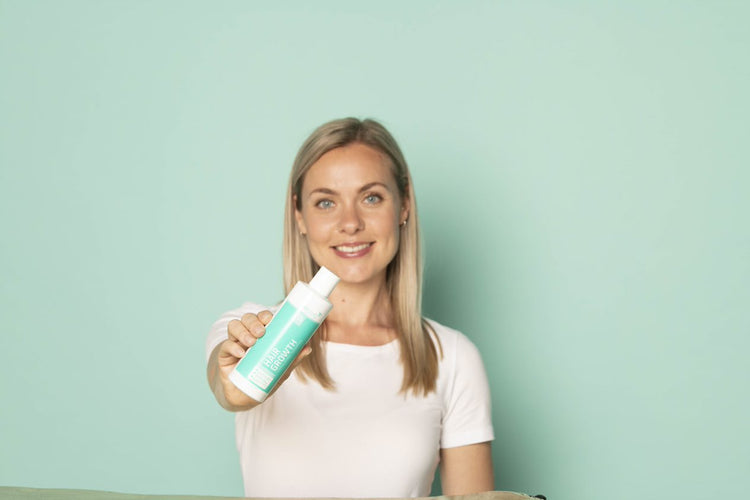In this article we tackle the doubt: "Is silicone bad for your hair?". Silicones are synthetic substances with several uses. They are heat-resistant and rubbery and can be used in hair products. Unfortunately, non-water-soluble silicones are not good at all for your hair condition. That’s why in this article, we explain which silicones are bad for your hair, how silicones are bad for hair and what you can do to avoid using products with silicones in them.
View our silicone free hair growth products
Are silicones bad for hair?
The answer to the question ‘Are silicones bad for hair?’, is at first no because it is not a toxic chemical. Silicones are safe to apply to your hair and won’t harm your physical health. The only thing that it could affect is the strength and smooth appearance of your hair. Common concerns are a weighty feel, dryness and build-up that is difficult to remove.
Which silicones are bad for hair?
So we already answered the question "Are silicones bad for hair?". To explain this further we delve deeper into which types of silicones there are. In general, three types of silicones are used in hair products. These are water-soluble, non-soluble and evaporating. They are added for the same purpose to create a thin, waterproof coating around your hair cuticle that keeps environmental aggressors out. Silicones can have so many names on a product ingredient list, the most ending with -cone on the end.
Which silicones are bad for hair is a question that you might be wondering right now. The answer to this question is silicones that are not water-soluble, for example, dimethicone and amodimethicone. The rest of this article focuses on two types of sillicones, we answer the questions: "Is dimethicone bad for hair?" and "Is amodimethicone bad for hair?.
Is dimethicone bad for hair?
Dimethicone is fine to use as an ingredient in your hair care and styling products. However, avoid the overuse of such products and do not overload your hair with them, because it would not promote the health of your scalp and hair.
The use of dimethicone and hair loss are also associated with each other. However, the issue of dimethicone hair loss is more related to the long-term damage that it may cause to your hair.
Is amodimethicone bad for hair?
Amodimethicone is a non-water-soluble silicone. That will form a coat on the hair and will further prevent water from entering the hair shaft. On the other hand, amodimethicone is not as bad as dimethicone for your hair. This is because it has benefits such as increased softness, a faster drying time, colour protection and thermal protection from heat styling.
How is silicone bad for hair?
Even though some silicones might have some advantages we will advice you to avoid products as a silicone conditioner for bad hair because the advantages do not weight up to the disadvantages. The most known disadvantage is that the protective layer formed by silicones can block nourishing ingredients from penetrating deep into the hair follicle. This can delay hair growth and the activation and stimulation of the hair follicles.
Over time, silicones also build up on your hair, resulting in a dry and dull appearance. Your hair can become weaker and more prone to breakage. Non-water-soluble silicones are also hard to remove with a regular wash and harsh washing can also damage hair follicles.
When you want to use an effective shampoo for hair growth. It is advisable to get a siliconefree shampoo that stimulates the hair growth for the long run and contains ingredients that are natural and nourishing for the scalp. The siliconefree shampoo calms the scalp, is effective against dandruff and lays the foundation for healthy hair growth. You can also use this shampoo effectively in combination with other hair care products of Neofollics for the best result on your hair condition.
Conclusion
In conclusion, the answer to the question "is silicone bad for hair?" is that it depends on which silicones you use. Some silicones might have advantages while overusing dimethicone can be bad for your hair. Hair loss and the use of dimethicone are associated with each other. You can tackle hair loss by using Hair Growth Products.


